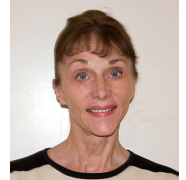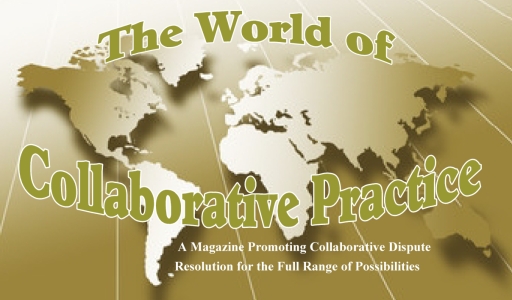
Tags
Related Posts
Share This
Collaborative Practice in Law Schools
Sherrie Abney shares information about the class she is teaching to upper class law students at Southern Methodist University’s Dedman School of Law.
This spring is the second time a three hour credit class on civil collaborative law is being taught at Southern Methodist University Dedman School of Law in Dallas, Texas. Other colleges and universities have offered one hour credit courses for workshops in collaborative law; however, it is believed that this is the only three hour, semester long collaborative law course taught in any accredited university or law school anywhere in the world.
The syllabus for the class begins with the history of law which allows students to understand how the current legal system developed. Next students are given an overview of various forms of dispute resolution and how each one works. The various dispute resolution procedures are viewed on a continuum with litigation at one end and collaborative law at the other. Students learn to advise their clients of the procedures that are available to resolve their disputes after taking into consideration the interests of their clients, the other parties, nature of the disputes, and the available forums. Students learn how they may apply collaborative skills to all dispute resolution procedures—even those of an adversarial nature.
The course continues with discussions and role play regarding interest-based negotiation, recognizing candidates for the collaborative process, and the paradigm shift that must take place to go from an adversarial to an interest-based process. Participation in in-depth activities and discussions regarding each step of the collaborative process allows students to gain confidence in the use of the collaborative process. Role plays are designed around business and commercial disputes, probate, medical error, personal injury, and construction matters—to name a few.
Last spring the class used a draft of a textbook written by the instructor, Sherrie Abney. Stu Webb wrote the Forward to the book and in it he states, “Hopefully this book and subsequent training will create the initial energy for civil-law practitioners to experience the break-through in their area of expertise that we family-law practitioners continue to experience as we support clients to achieve collaborative agreements.” Hopefully more courses will be taught in more schools and the break-through will happen soon. The title of the book is Civil Collaborative Law, The Road Less Traveled. It was published last fall and is available on Amazon.com.
Sherrie R. Abney
What are your thoughts on this development? Do you know of other law schools that have begun to teach this attitude and approach?









Hi, Pam!
I believe Sherrie is currently out of the country, but I will make sure she is aware of your inquiry. Meantime, you can check out her books on Amazon, including a ‘look inside’ using the widget in the original post above.
InJoy!
cMr
I’d like to learn more about this course and the book. For the last several years I have taught Collaborative Law as an adjunct professor at the Univ. of Fla. Levin College of Law. It is a 2 hour “skills” course, capped at 20 upper level students. Most participants are 3rd year but I have had a few 2nd year students, as well. Thus far I have used Pauline Tessler’s Collaborative Law, Achieving Effective Resolution in
Divorce without Litigation as the text.
Hi Pam
I am not sure what you would like to know about the course. I think that the syllabus may be posted on SMU’s website, or if you would like me to send it to you, I will. The text book has exercises at the end of each chapter. The book was written because I could not find a text that addressed “civil” collaborative law. I am guessing that you have been teaching “family” CL. The skills for family and other types of civil cases are much the same, but the approach varies. I am not familiar with what collaborative lawyers are doing in Florida. Many different areas of the country have particular models employed by the family folks, but I do not recommend a particular “model.” I believe that you should develop a team specific to each situation according to the needs of the participants. Many cases need only the laywers and their clients. I acknowledge that some of the professionals used in family cases provide “added value;” however, most business people are not very receptive to MHPs and outside financial people develving around in their disputes. They just want to get disputes settled and get on with their business.
Rather than trying to fit every dispute in to the collaborative process, I try to show the students how they can create an interest based dispute resolution process for the situations that their clients bring them. Many business disputes are not suited to nor do they require a formal collaborative approach, but they can still be settled using an interest based approach.
The collaborative law subcommittee of the Dispute Resolution Section of the ABA is collecting syllabi of collaborative law courses. I hope you will send yours to Woody Mosten, David Hoffman, or Larry Maxwell here in Dallas– or to me and I can forward it.
Hope this helps.
Sherrie